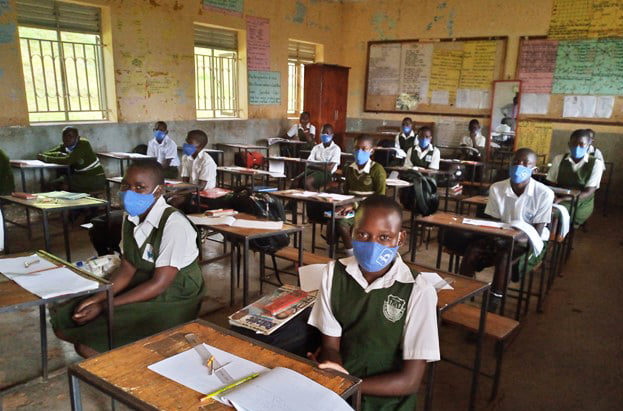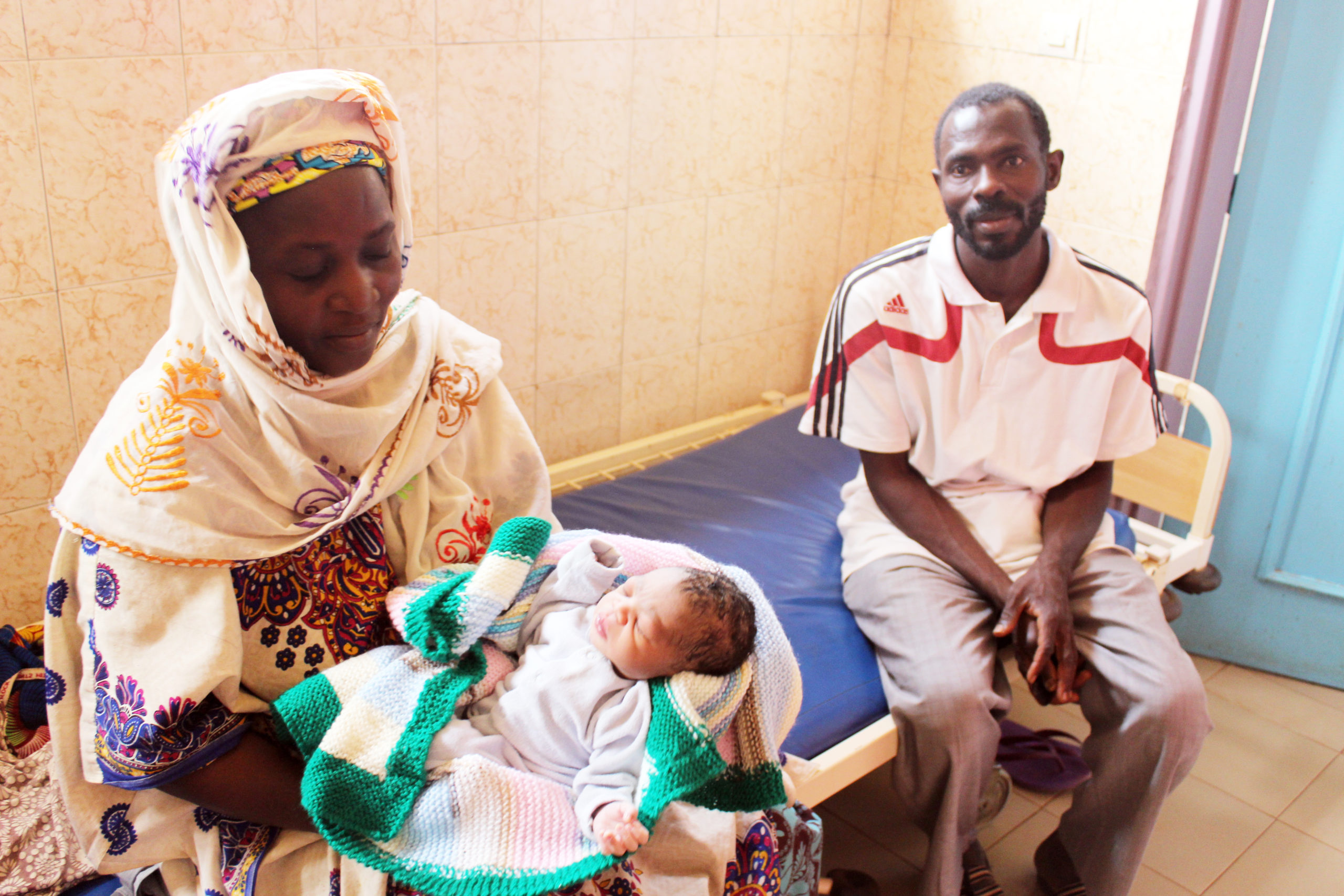Helping Families build Resilience
“Measuring impact” is a phrase that we often use to demonstrate how programmes are positively helping families and communities overcome crises and build their way out of poverty. Today, however, it is difficult to even begin to describe the devastating impact of COVID 19 across our partner countries, let alone measure it.
In the UK we have personally felt the extremities of this virus’ impact, from fear of infection to the ever-growing social and economic crisis of the imposed lockdowns. Our everyday vocabulary has been expanded to include phrases like “quarantine”, “self-isolate”, “lockdown”, “R rate” and “the rule of 6”.
Our partner countries have felt these changes at an exacerbated level. With medical, educational and public transport systems already being underdeveloped, enforced lockdowns have multiplied issues like mass unemployment, teenage pregnancy, domestic violence, child labour and hunger. Food supply systems have been cut off and schools forced to close. It is unclear when and how these non-government schools will have sufficient resources to reopen. The government-imposed lockdowns have exposed the fragility of developing economies that depend on cross-border traffic for supplies and people travelling for business or tourism. The UNDP (United Nations Development Programme) has estimated the economic impact on developing countries to be $220 billion.
Looking to the Future…
Today our partners are beginning to see restrictions ease. Churches are starting to congregate again. Public transport, although still limited, is operating and borders are opening, with air traffic slowly increasing. Schools are also gradually allowing students back with many new regulations and guidelines. We know so well that easing restrictions also carry the threat of being reversed if infection rates rise. We need to understand that the virus and its accompanying impacts, will be with us for a long time to come and as we continue to work with our partners around the world we want to focus our efforts on helping families to build resilience for the future.
The Next Steps
Our first priority is to facilitate children back into education safely. To do this, classrooms will have to be less crowded and classes more frequent.
Social distance measures mean that dormitories will also have to halve their capacity and each school will need its own PPE facilities. Our other project areas that have been on hold are slowly starting to reopen. The Livelihoods Programme and Lydia Ladies women’s empowerment programme in Nepal have both resumed. The WASH Programme in Uganda is also resuming, and our church workers have been able to start ministering again in their communities. We are grateful that families will once again be able to benefit from these resources and become equipped with skills that will serve their communities into the future.
Health and Well-being
Building health service capacity is absolutely vital both for combating the virus and ensuring that the communities we serve will continue to thrive in the long term. Earlier in the year, our partner-run medical centres in Uganda and Burkina Faso began to notice that people were wary of coming to get their regular treatments due to fear of catching the virus.
We responded by providing essential PPE equipment to help to reassure patients and protect the staff. We have seen confidence return and the medical centres are as busy as ever serving the local population. We will need additional support to continue providing PPE as the pandemic continues.

We responded by providing essential PPE equipment to help to reassure patients and protect the staff.
Improved Livelihoods
Rebuilding livelihoods creates new sources of income. Through the programme, families receive support through resource provision such as tools and livestock. They are also supported with vocational skills training and finances to build their own small businesses. Individuals and households are given the choice of how their families are supported.
Many elect for livestock support to start their own farming businesses, others opt for skills training and resources to start their own businesses such as furniture making and other trades. We need your help to relaunch our livelihoods programme as soon as possible to in order to help ease the strain and economic impact of lockdown on families.

Access to nearby tippy-taps like this one mean vulnerable members of the community can wash their hands during the crisis with ease.
Safe Education
We are passionate about seeing all children receive an education that is excellent, empowering and above all, safe. All of our partner-run schools have been closed since March and are now adapting to the new government guidelines in order to reopen safely this month. Children of all ages are now required to wear face masks and routinely wash their hands.
All available rooms are being repurposed as extra classrooms and we are needing to acquire more furniture urgently in order to meet the new social distancing guidelines. Our partners are doing everything they can to reopen schools whilst also protecting the children and their families. Read more here

In Buikwe, Uganda we are providing masks to make the back to School transition safer.
Can you help us?

This project was completed in August 2022
IN Global
Health
Key facts
The Coronavirus crisis is far from over and we need your support to help our partners build resilience to face the challenges ahead. We are focusing particularly on raising additional support for:
- Safe education
- Livelihoods
- Health projects
Help support our efforts
Donate today and help our ongoing work to improve the lives of families around the world. By supporting our different areas of development, your generosity will deliver impact and real change.
donateproject updates
February 16th, 2021
Hope Through Healthcare
A Terrible Dilemma
According to the World Health Organisation, half of the world’s population are still unable to readily access essential health services. For up to 100 million people, the cost of basic healthcare puts their family at material risk of being pushed into extreme poverty. It is hard to fathom the personal tragedy of having to choose between buying food and life-saving medicine for your child. It is harder still to grasp the vast scale of how many families have to face this dilemma, year after year.
The pandemic has thrown the disparity in global healthcare provision into sharp relief. Health systems in developing countries remain fragile and an area for grave concern. Thankfully, Africa’s very young population and relatively strict lockdown responses appear to have prevented high mortality rates. At present, other deadly endemic diseases such as malaria and typhoid continue to pose the most urgent threat to life for many. Providing access to affordable testing and treatment facilities remains a top priority – both for saving lives and preventing further collapse into poverty.

Hope through Healthcare
The St Ophel centre in Burkina Faso was set up specifically in response to the exponential population growth in Bobo-Dioulasso. Our IN partners realised that many poor people were simply not able to afford to use existing over-stretched clinics in the area. The medical centre has grown and made significant steps towards improving patient care and sustainability. The centre now has a thriving maternity unit, pharmacy and dispensary equipped to treat a wide range of common illnesses. Malaria typically accounts for over half of all patients.
Urgent Appeal – Medical Equipment for Burkina Faso
Over the last five years the St Ophel laboratory has been able to screen over 50,000 patients for various diseases. Unfortunately, the core testing equipment is now at the end of its lifespan and no longer able to give reliable results.
We need to raise £30,000 to replace the microscope, haematology analyser and bio-chemistry analyser in order to restore the essential diagnostic capacity of the centre. The urgent appeal will also enable us to help them acquire an ambulance vehicle to transfer critical patients to the district hospital. Anything raised over and above the target will go towards resourcing the centre with further provision of PPE.
We’d love to invite you to consider giving towards this urgent appeal so that INBF can continue to provide families with excellent, affordable and life-saving treatment.
Donate online HERE
If you’d like more information, please get in touch with Rich at rich@ineeds.org.uk.

Virtual Tour of the Burkina Faso Medical Centre – 25th Feb
Join us on 25th Feb at 3PM for a virtual tour of the Medical Centre in Burkina Faso. We will hear directly from the doctors and medical staff and a great chance to ask any questions. Sign up HERE.

February 16th 2021
